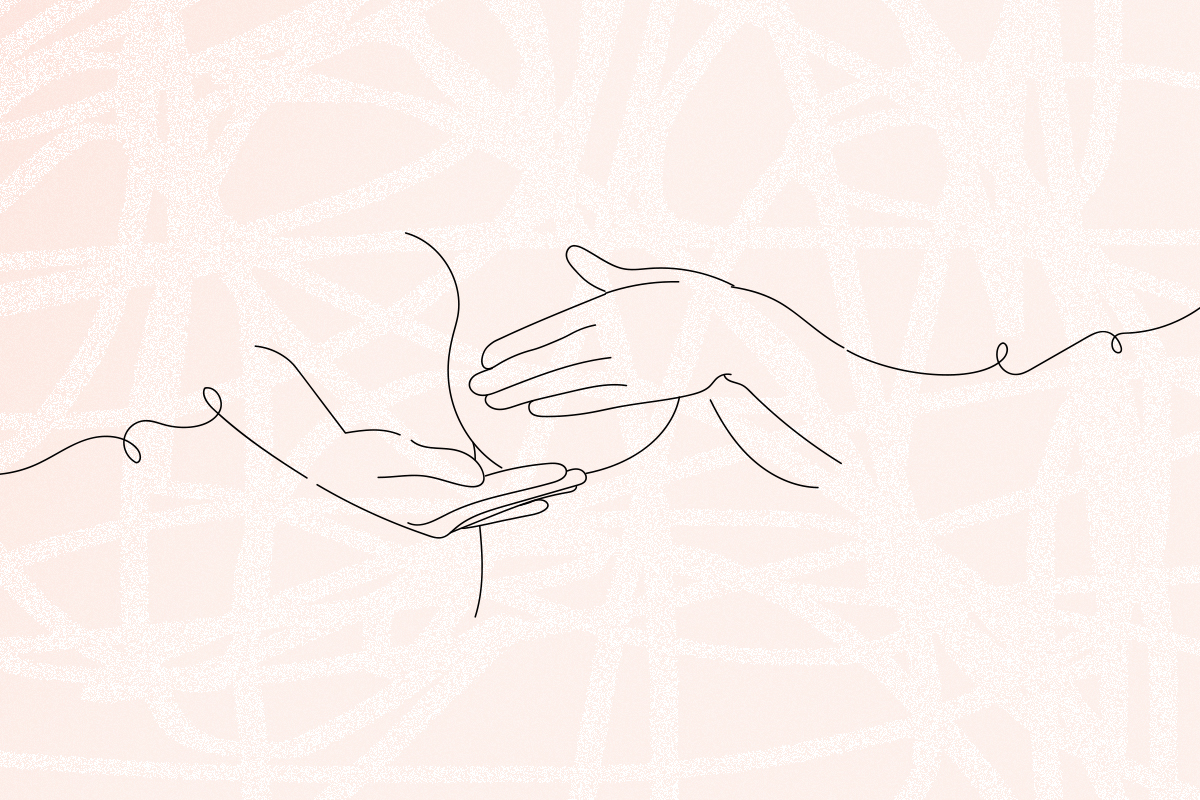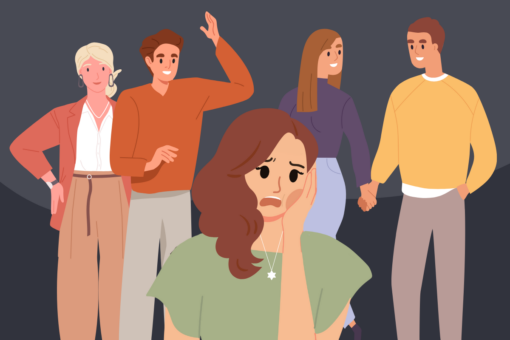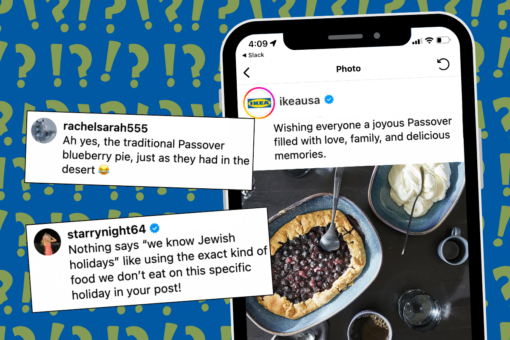There’s a feeling I experience at times of fear that can be best described as a stomach drop. It happens when I’m about to do something I’m afraid of, when I get turned down, or when I hear some bad news. A stomach drop is precisely what I felt the day I opened my 23andMe results and saw in big letters: “BRCA1 Positive. Speak to your doctor.”
My chest tightened up and tears came to my eyes. I had known this was a possibility, but I still wasn’t prepared to find out that I was cursed with the same gene that gave my mother breast cancer at age 37. I didn’t know how to react.
BRCA is an abbreviation for “Breast Cancer Gene.” The BRCA1 gene itself isn’t harmful, it’s actually a tumor suppressor gene, helpful in repairing DNA. However, if it is mutated and does not function correctly, it can lead to a higher risk of breast and ovarian cancer.
When I received a 23andMe kit for Hanukkah, I went through the questions on the website such as “do you want us to find potential family members” and “can we use your sample for research” clicking yes to everything. Then I got to the health section, where it asked if I wanted to know about any genetic issues — including the BRCA genes. I hesitated, but decided to mark yes on that one, too. I knew that I’d have to get tested for that gene at some point in my life, so why not now?
I was only 6 years old when my mother was diagnosed with breast cancer. We were living in Russia at the time, because of my father’s job assignment, but within 48 hours of her diagnosis, we were on a flight back to the U.S. for treatment. When we landed, we found out that my grandmother had been diagnosed with the same disease that same week.
By that point, my grandmother had gone through treatment for ovarian cancer twice. Now, both she and my mother faced breast cancer. Although my family tried to shield me the best they could, I still saw enough to remember that terrible time. Both my mother and grandmother lost their hair and my father shaved his head in solidarity. After each chemo treatment, my mother stayed in bed for days as nausea and fatigue overwhelmed her already weakened body. My grandmother — who I always knew as happy and energetic — suddenly seemed weaker, slower, older. I didn’t realize it then, but I could have lost two of the most important people in my life at 6 years old.
After the treatment, the effects lingered – and they linger still. The aura of health and light that had surrounded my mother was gone; it took years for it to return. She still has moments she refers to as “chemo brain” when she can’t remember a simple word or moment, even more than a decade later. Every ache she and my grandmother have makes their fears surface. Every time either one of them goes for a test, the wait for the results seems excruciatingly slow. The word cancer became taboo in our household – it was like a monster that could come out from under the bed at any moment.
However, throughout all these hardships, my mother and grandmother stayed courageous. They took up yoga to calm their minds and ate fresh fruits and veggies to strengthen their bodies. They never gave up on living.
For a few years after that, things seemed to get better. I enjoyed my childhood, having pushed the memories from that terrible year into the back of my mind. However, when I got my period at 12, my mother sat me down for a conversation: “Remember to check your breasts for lumps every month.” And, for the past eight years, that’s what I have been doing. My mother and grandmother never knew they had the gene until after they got diagnosed, and had gone to the doctor because they had found a lump in their breast.
Flash forward to my 23andMe results. After seeing the results — that I was BRAC1 positive — I turned to Dr. Google. I spent hours researching the risks, writing down the preventative measures I could take, stressing myself enough to pull out my hair. I’m a hypochondriac; my increased cancer risk would now always hover over me. Every time I took a sip of alcohol, stood next to someone smoking a cigarette, or even ate a sugary substance, I’d wonder if it was increasing my risk of an early onset cancer. The 23andMe result felt like a life sentence.
It was really hard — it is really hard — for me to come to terms with being BRAC1 positive. I’m only 20 years old; I have so much life left to live. It’s infuriating and scary. But more than anything, when I found out, I was angry. Angry at the results; angry at the world; angry at my Ashkenazi ancestors for whatever they had done to make our people the most prone to this genetic mutation. Why me, why us, I thought?
After some time, I realized that being angry, sad, and scared was not going to help me. What’s the point of living life always on edge, always terrified of what may come? I asked myself. My mother found her lump during a self-exam; it gives me hope that, as long as I make sure to regularly check myself, I can live a normal life. After meeting with my gynecologist and discussing ways to monitor my breasts and ovaries, I felt even more reassured.
My future doesn’t have to be full of fear, anxiety, and what ifs. If it happens, it happens. But knowing what I know now, at least I won’t be blindsided by it. And I can draw inspiration from both my mother and grandmother on how to live through it.
Header design by Grace Yagel.



